 Petzlover
Petzlover Cymric is originated from United Kingdom but Javanese is originated from United States. Both Cymric and Javanese are of same weight. Both Cymric and Javanese has same life span. Cymric may have less litter size than Javanese. Cymric requires Moderate Maintenance. But Javanese requires Low Maintenance
Cymric is originated from United Kingdom but Javanese is originated from United States. Both Cymric and Javanese are of same weight. Both Cymric and Javanese has same life span. Cymric may have less litter size than Javanese. Cymric requires Moderate Maintenance. But Javanese requires Low Maintenance
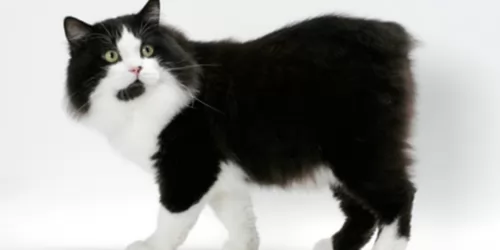 The Cymric is a naturally tailless cat although having said that, not every Cymric is completely tailless.
The Cymric is a naturally tailless cat although having said that, not every Cymric is completely tailless.
It’s actually a long-haired Manx cat this and thought to date back to 1750. It is one of the oldest cat breeds.
Known also as rumpies or stumpies, the taillessness of the Manx an Cymric started as a mutation among the island's domestic cat population. Long-haired kittens were born to Manx cats on the Isle of Man, but in the 1960s, similar kittens were born in Canada and then specifically bred.
The Cymric became popular, even though it took years for the Cymric to be recognized as a breed of its own by cat associations. The International Cat Association (TICA) gave the cat breed status in 1979.
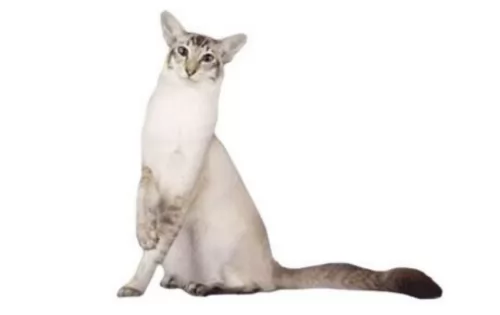 The Javanese is also known as the Colourpoint Longhair in some cat registries, but it's a purebred domestic cat that was developed in North America.
The Javanese is also known as the Colourpoint Longhair in some cat registries, but it's a purebred domestic cat that was developed in North America.
It was Helen Smith that coined the name Javanese cat in 1950 with the name being derived from the tradition where cats of the Orient have the names of the countries and islands of south-east Asia.
The name Javanese was chosen by choosing Java, an island near Bali.
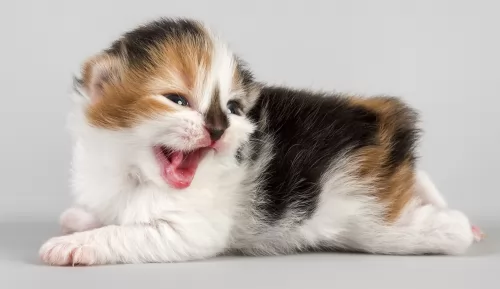 The Cymric is a medium-sized cat that can weight between 4 and 6kg and he is round in shape and stockily built. The back legs are also longer than the front legs.
The Cymric is a medium-sized cat that can weight between 4 and 6kg and he is round in shape and stockily built. The back legs are also longer than the front legs.
He has a short, arched back with a broad rump. The unusual but beautiful Cymric has long hair and a thick double coat that is glossy and vibrant. Some cymrics have tufts of hair on their ears and toes.
All colors of the coat are available and it can be solid or patterned - white, blue, red, black, cream, tortoiseshell etc.
The eyes are large and can be green, copper, or yellow. The ears are widely spaced with rounded tips.
The Cymric is described as a sweet-natured, placid cat that doesn’t get ruffled over much, though he does get excited about his human family.
He tends to be reserved around strangers. He is a loving cat and simply loves being around his human family. He is a strong cat and intelligent too and he is quite capable of watching you and then learning how to open doors and get into cupboards.
He is sociable and talkative too and enjoys ‘talking’ to you, especially when he has attached himself to one member of the family. He thrives on his human family's company and is a cat that provides lots of entertainment for you. Even though he becomes attached to one family member, he gets on well with children and pets in the home.
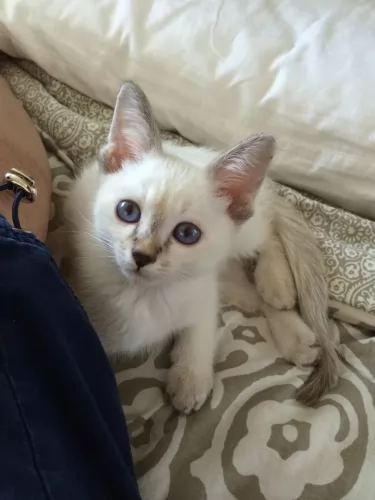 The Javanese is a medium-sized, slender, muscular cat that weighs between 3 and 6kg. It has a short or long, silky coat that comes in a number of colors. The short-haired variety has a single coat, in contrast to the double coat found in the long-haired breeds.
The Javanese is a medium-sized, slender, muscular cat that weighs between 3 and 6kg. It has a short or long, silky coat that comes in a number of colors. The short-haired variety has a single coat, in contrast to the double coat found in the long-haired breeds.
The tail is fairly plumed. The Javanese also has point coloration which means that the body is paler than the darker face. The coat comes in a variety of colors and patterns, from dark brown to cream to tortoisehell and others. The ears are large and the almond-shaped eyes are always blue.
Siamese and the Javanese differ a little in coat length and color but otherwise they are much the same in temperament. They love their human families and will follow them around like a dog.
When you sit down they like to curl up in your lap and simply be around you. They may not be as vocal as the Siamese but he is still prepared to have a jolly good conversation with you.
They’re clever cats too and like stimulating games and toys. He loves to climb, so a climbing tree will be excellent for him. He also likes being busy, so if you leave him alone for a length of time, ensure that he has activities to keep him happily amused.
If you have a Javanese be sure to include him in your activities just like you would a child of yours.
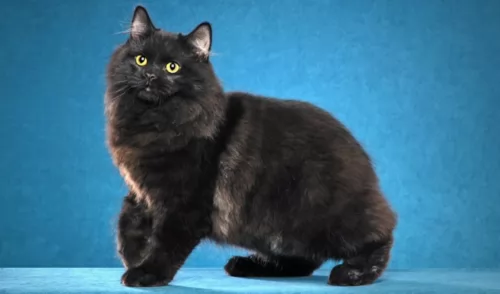 Yes, the Cymric has quite a few health issues but many people choose to overlook these as they love the personality of the lovable cat breed.
Yes, the Cymric has quite a few health issues but many people choose to overlook these as they love the personality of the lovable cat breed.
It’s such an intelligent cat too but best of all it offers total love and companionship.
It is certainly an unusual domesticated cat breed that appeals to many different people and it is guaranteed that you’ll also find him one hang of a feline pet.
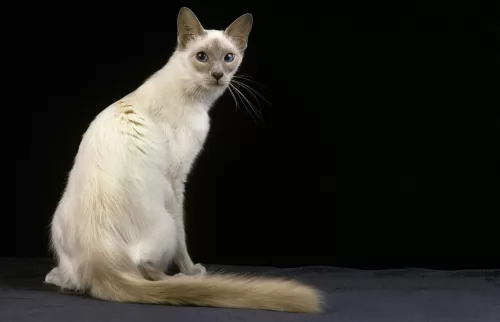 Your medium-sized Javanese cat is active and talkative. These are cats that love leaping up onto high perches and into trees and it is therefore imperative that you invest in climbing equipment for him.
Your medium-sized Javanese cat is active and talkative. These are cats that love leaping up onto high perches and into trees and it is therefore imperative that you invest in climbing equipment for him.
These slender Oriental cats need an excellent diet to maintain the fine-boned, muscular physique. You don’t want your Javanese becoming overweight as this spells bad health and sluggishness.
The Javanese is such a lively cat if his weight is maintained and he loves being around his human family, purring away while he is lovingly made a fuss of.
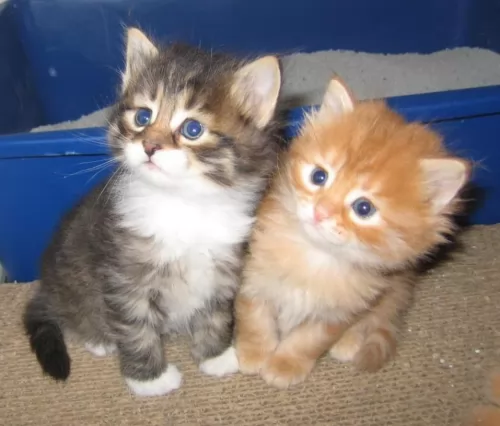 If you look after your Cymric well, he can live to a good age of up to 15 years. The lack of a tail is a genetic defect and the cat’s deformed spine can cause health problems including arthritis.
If you look after your Cymric well, he can live to a good age of up to 15 years. The lack of a tail is a genetic defect and the cat’s deformed spine can cause health problems including arthritis.
In fact, the cat’s lack of a tail causes some serious diseases. The defective gene responsible for the loss of the tail affects the spine and can actually cause spinal problems. In fact, when completely tailless Manx cats mate, the defects can be so severe that some of the offspring are born dead.
People often speak of these health issues of the cat as the Manx Syndrome.
Some cats have a narrowing of the anal passage and this can lead to bowel blockages. Make sure to get your Cymric vaccinated against deadly cat illnesses and ensure veterinary checks for parasite control and illness.
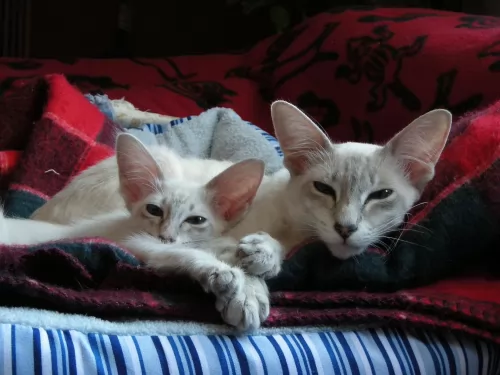 The same health issues that you’re likely to pick up with the Siamese may well be found in the Javanese too.
The same health issues that you’re likely to pick up with the Siamese may well be found in the Javanese too.
Some of the health issues to look out for include among others, asthma or bronchial disease, heart defects, lymphoma as well as gastrointestinal conditions.
For the health of your Javanese cat, make sure the vaccinations are up to date.
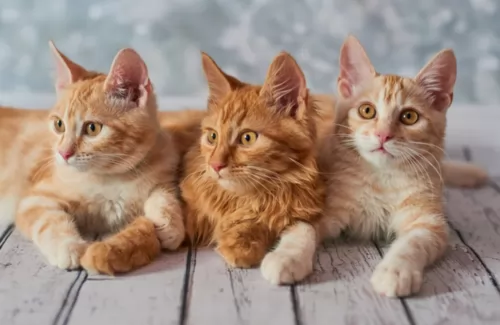 As a kitten, provide your Cymric with food appropriate to its age. Once your cat turns one, you can start feeding him adult cat food. There are a whole lot of excellent commercially manufactured cat foods – dry and canned foo – but always choose a high-quality one where the first ingredients listed are always meat. This is because the cat is a carnivore. Make sure the food has taurine, which is an essential amino acid for cats.
As a kitten, provide your Cymric with food appropriate to its age. Once your cat turns one, you can start feeding him adult cat food. There are a whole lot of excellent commercially manufactured cat foods – dry and canned foo – but always choose a high-quality one where the first ingredients listed are always meat. This is because the cat is a carnivore. Make sure the food has taurine, which is an essential amino acid for cats.
This cat has a thick coat and he will need a brush at least twice a week, especially as he is a high shedding cat. While you brush your cat, look out for any problems such as red areas, hair loss, sores or irritated skin. Take note of any unusual lumps.
Some people take their Cymric to the vet once a year for a routine medical check-up. They have the nails clipped and the ears and teeth checked. It is also a great way to get your queries answered on the nutritional and health needs of your pet.
You will need to have your Cymric’s nutrition checked to keep him in tip-top condition. The Cymric cat has a good appetite and his build can allow him to put on weight easily. Obesity can put pressure on the spine and lead to all kinds of joint problems.
Provide your cat with a litter box and keep it immaculately clean.
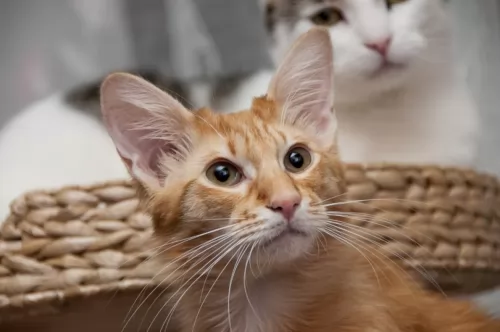 Cats are carnivores and have special dietary needs. They have unique nutritional needs, something like lions and cheetahs.
Cats are carnivores and have special dietary needs. They have unique nutritional needs, something like lions and cheetahs.
Their protein needs are very high, especially when they are kittens or nursing mothers. They need animal protein in their diets. Some of the unique nutritional needs of cats require them to have this protein as well as very important amino acids such as arginine and taurine.
Just because your cat needs such a high intake of protein, it doesn’t mean he won’t need other nutrients. Cats need balanced nutrition that is right for them. The best commercially manufactured cat food with fats, carbs, minerals, and vitamins will ensure a healthy cat. Speak to your vet if you’re not sure.
Not all cat foods are the same and choosing the right cat food will ensure your cat gets a sufficient dose of protein powder. So important is a cat’s diet for good health, that it will be important to speak to your vet about the food requirements of cats.
With grooming, the fine silky coat can be cared for easily by giving it a brush each week. You want to remove loose hairs from shedding. You can also take a damp cloth and wipe your Javanese down.
The nails will also need to be trimmed. When you brush your cat, check up on other things too.
Make sure the eyes are nice and clear, the fur soft and vibrant, make sure there are no new and unusual lumps.
Check inside his mouth for bad teeth that could be causing all kinds of health issues and check inside his ears too. For all these grooming issues, a pet grooming parlor can do it all for you.
Provide your Javanese with a litter box and keep the box scrupulously clean.